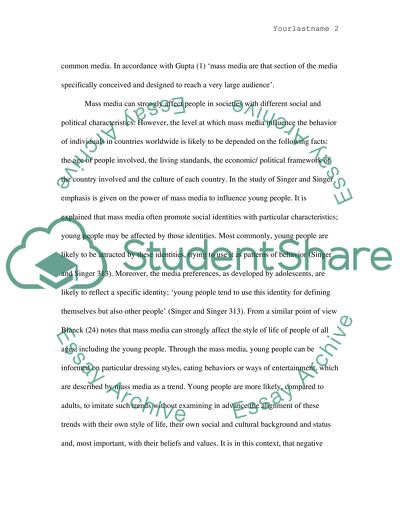Cite this document
(“Mass Media Influence on Society Research Paper Example | Topics and Well Written Essays - 2750 words”, n.d.)
Retrieved from https://studentshare.org/sociology/1427166-mass-media-influence-on-society
Retrieved from https://studentshare.org/sociology/1427166-mass-media-influence-on-society
(Mass Media Influence on Society Research Paper Example | Topics and Well Written Essays - 2750 Words)
https://studentshare.org/sociology/1427166-mass-media-influence-on-society.
https://studentshare.org/sociology/1427166-mass-media-influence-on-society.
“Mass Media Influence on Society Research Paper Example | Topics and Well Written Essays - 2750 Words”, n.d. https://studentshare.org/sociology/1427166-mass-media-influence-on-society.


